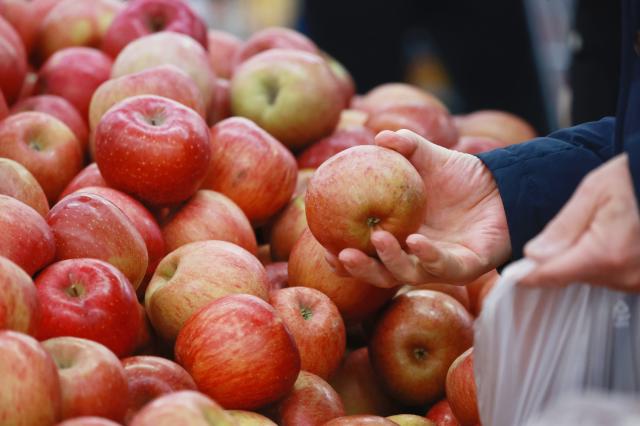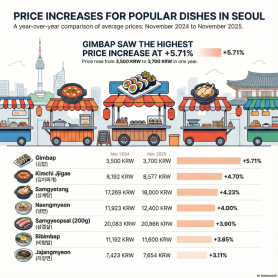
SEOUL -- South Korea witnessed a historic surge in fruit prices in February 2024, with an inflation rate of 40.6 percent. This unprecedented increase marks the highest recorded since 1991, when the country began officially archiving fruit price inflation data.
According to the national statistical information service, the inflation rate for apple prices in February stood at 71.6 percent, attributed to dwindling production caused by adverse weather conditions. Purchasing an apple now costs about 9,000 won ($6.8) on Coupang, South Korea's counterpart to Amazon.
Alongside apples, pears have also become exorbitantly priced fruits in South Korea, experiencing an inflation rate of 61.1 percent. Other fruits have similarly seen sharp price increases, with tangerines up by 78.1 percent, watermelons by 51.4 percent, and strawberries by 23.3 percent.
The sudden surge in fruit prices has caused upheaval among business operators and parents of young children. "It has become a burden to buy fruits for my kids. I now feed them tomatoes because they are the cheapest option," Ha Yoon-jeong, a working mother of three children, told Aju Business Daily on March 12.
"A box of strawberries now costs about 30 percent more than it did last month. While the cost of making strawberry juice has risen, I cannot pass on the extra expense to my customers. This situation is disheartening," shared Jeong Gu-jeong, a 40-year-old fruit juice store owner.
The Ministry of Agriculture, Food and Rural Affairs attributes the decline in fruit production in 2023 to the current price hike. Prolonged cloudy summer and autumn seasons have hindered fruit growth. Importing fruits is not seen as a viable solution, as it risks introducing new types of pests and plant diseases, ultimately leading to increased costs.
To alleviate the burden on consumers, plans are underway to expand supply and provide discounts on agricultural and livestock products. The ministry plans to allocate 69 billion won ($52.6 million) this year to support discounted sales.
Copyright ⓒ Aju Press All rights reserved.




